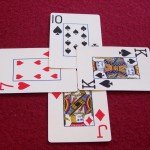Music and gambling
Hello Dear Reader !!
No, I have not fallen off the edge of the Earth. I was busy moving back to the UK, starting my new job at Sheffield, meeting many lovely new people and finding my feet back ‘up north’ in York again.
I feel settled now and, like all in academia, am getting on with the new year.
 I hope you are well, Dear Reader. I promise I thought of you often since last we spoke. To make up for my absence in the last few weeks the blog has had a thorough clean. The job/scholarship and conference pages are now up to date (lots of exciting meetings in 2015 so far) and all your kind comments have been answered. I hope you find these changes useful.
I hope you are well, Dear Reader. I promise I thought of you often since last we spoke. To make up for my absence in the last few weeks the blog has had a thorough clean. The job/scholarship and conference pages are now up to date (lots of exciting meetings in 2015 so far) and all your kind comments have been answered. I hope you find these changes useful.
Now, back to our usual fun of new findings in music psychology!
This week I spied a paper on the role of music in gambling behaviour. This peaked my interest as it is a subject that some of our students at Sheffield study, so I thought I would give it a read, to better relate to their work.
 Now – I am not a gambler by nature, Dear Reader. To my knowledge, other than the 2p machines on Scarborough sea front (see image if you are not familiar) or the occasional National Lottery flutter I have only gambled once in my life. I joined a work team bet on the Grand National horse race. To my shock I won. I decided to buy my colleagues a drink and retire while ahead.
Now – I am not a gambler by nature, Dear Reader. To my knowledge, other than the 2p machines on Scarborough sea front (see image if you are not familiar) or the occasional National Lottery flutter I have only gambled once in my life. I joined a work team bet on the Grand National horse race. To my shock I won. I decided to buy my colleagues a drink and retire while ahead.
For those who do encounter gambling situations on a more regular basis, what is the impact of the music on them? And, interestingly, how might an understanding of the effects of music on gambling help clinical approaches to problem behaviours such as addiction?
There has been interest in the role of music on gambling behaviour for at least the last century. Previous studies have produced mixed results. In one case the presence of music helped gamblers better monitor their behaviour and passage of time (poorer memory for actions was observed in the absence of music). In another couple of studies faster tempo music was associated with faster betting behaviours, but not higher risk taking.
 In the new paper ‘a nonclinical sample of 101 students (72 females) played a computerized gambling task in which either a high-tempo or a low-tempo musical soundtrack was present’. The idea was to include music as part of the game, rather than using background music. This is a more realistic experience of many gambling situations such as slot machines (“one-armed bandits” my Grandmother used to call them).
In the new paper ‘a nonclinical sample of 101 students (72 females) played a computerized gambling task in which either a high-tempo or a low-tempo musical soundtrack was present’. The idea was to include music as part of the game, rather than using background music. This is a more realistic experience of many gambling situations such as slot machines (“one-armed bandits” my Grandmother used to call them).
Faster reaction times and bet making were expected. The authors also asked people about their enjoyment of the game. Participants completed a standardised gambling scale before the task to assess any pre-existing problem behaviours.
Method: The game, called “Superjack” , was realised in Eprime 2. To paraphrase the paper, the task was to select one of four cards by pressing one of four keys on a standard keyboard. Each trial (bet) cost NOK 3 ($0.50), and a start-up credit of NOK 50 ($9) was provided.
 Participants were told the following: If the selected card turned out to be a Queen, King or Ace a small win of NOK 3 ($0.50) would be obtained. A Jack of any suit would yield a win of NOK 20 ($3.50). A Joker would win NOK 100 ($18). A SuperJack (special card) would win NOK 250 ($44.50), and two consecutive SuperJacks would win NOK 850 ($151). Any other card resulted in no win on that trial.
Participants were told the following: If the selected card turned out to be a Queen, King or Ace a small win of NOK 3 ($0.50) would be obtained. A Jack of any suit would yield a win of NOK 20 ($3.50). A Joker would win NOK 100 ($18). A SuperJack (special card) would win NOK 250 ($44.50), and two consecutive SuperJacks would win NOK 850 ($151). Any other card resulted in no win on that trial.
Reaction times were measured as were the number and amount of bets placed. Game evaluation was rated by participants at the end.
Results: Participants in the slow music tempo group placed more bets compared to participants in the fast tempo group. This finding is in line with research in other public arenas, such as restaurants, where people tend to spend more time and money in establishments with slower tempo music.
Participants who heard the fast soundtrack had faster reaction times compared to participants in the slow game music condition.
In terms of overall enjoyment there was no effect of musical condition.
Conclusions: Overall it appears that slow music prolongs gambling behaviour compared to fast music – in the latter condition people are much quicker to bet (and in most cases run out of money). Neither of these responses seem linked to a person’s liking of the task or the music.
 The authors argue that the paper underlies the importance of learning and employing self-awareness and self-monitoring strategies when gambling, as these can potentially be modified by music: And the importance of knowing environmental impacts. It remains an open question whether the music still effects people once they are made aware of its presence and possible impact (that would be an interesting follow-up).
The authors argue that the paper underlies the importance of learning and employing self-awareness and self-monitoring strategies when gambling, as these can potentially be modified by music: And the importance of knowing environmental impacts. It remains an open question whether the music still effects people once they are made aware of its presence and possible impact (that would be an interesting follow-up).
So there you go, a simple little paper for my return to the blog, but one that I hope opens questions and thoughts about useful clinical applications.
Dear Reader, I wish you a pleasant weekend and week ahead.